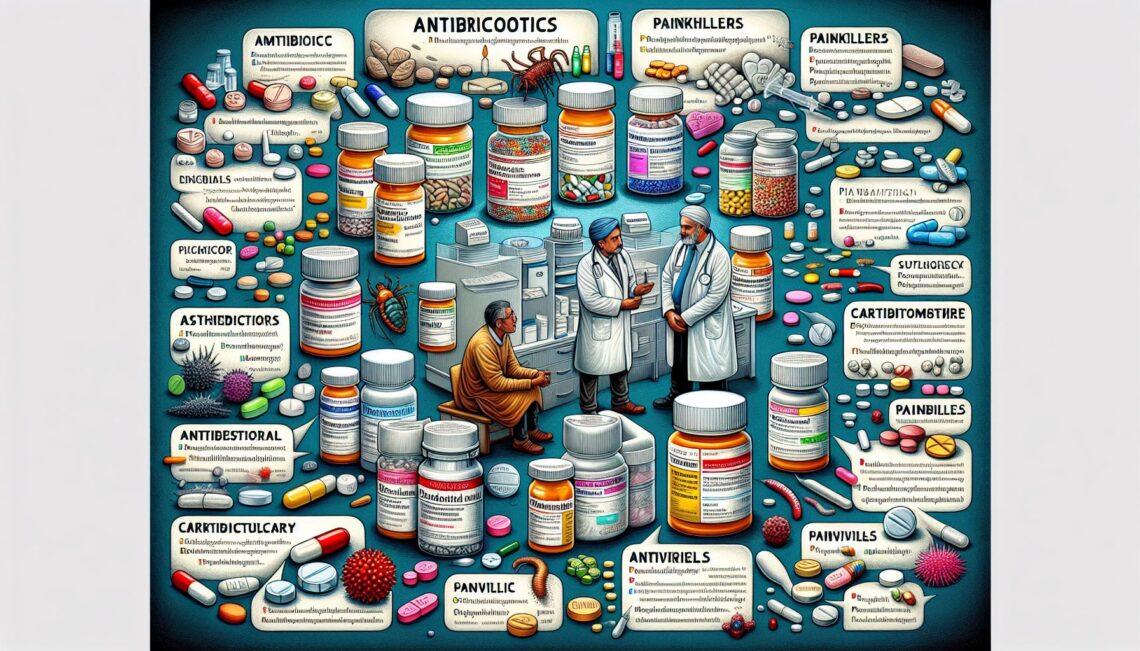
Understanding the Different Types of Medicines
In today’s world, medicines have become an integral part of our lives. They are an essential tool in maintaining our health and treating various illnesses. With numerous medicines available in the market, it is essential to understand the different types and their purposes. In this article, we will delve into the various classes of medicines and explore how they work.
1. Analgesics:
One of the most commonly used medicines, analgesics, are widely known as pain relievers. They help alleviate pain by blocking specific pain signals in the body. This category includes over-the-counter drugs like paracetamol and ibuprofen, as well as stronger prescription medications like opioids.
2. Antibiotics:
Antibiotics are used to combat bacterial infections. They work by inhibiting the growth of bacteria or killing them outright. These medications are divided into various classes, each targeting specific types of bacteria. It is crucial to take antibiotics as prescribed to ensure the complete elimination of the infection.
3. Antidepressants:
As the name suggests, antidepressants are used to treat depression and related mental health disorders. They work by balancing neurotransmitters, such as serotonin and norepinephrine, in the brain. It is important to note that antidepressants should only be taken under the supervision of a healthcare professional.
4. Antacids:
Antacids are commonly used to relieve heartburn and indigestion. They work by neutralizing excess stomach acid, providing relief from discomfort. These medications are available in various forms, including tablets and liquids, and are typically taken as needed.
5. Antihistamines:
Antihistamines are used to treat allergies and their symptoms, such as sneezing, itching, and runny nose. They block histamine receptors in the body, reducing the allergic response. While some antihistamines can cause drowsiness, newer generations have fewer side effects in this regard.
6. Corticosteroids:
Corticosteroids are medications that mimic the effects of the hormones naturally produced by the adrenal glands. They are commonly used to reduce inflammation and suppress the immune system. Corticosteroids are available in various forms, including oral tablets, inhalers, creams, and injections.
7. Diuretics:
Diuretics, also known as water pills, help increase urine production, reducing fluid retention and swelling. They are commonly used to treat conditions like high blood pressure, heart failure, and kidney problems. It is important to monitor electrolyte levels while taking diuretics.
8. Hormonal Medications:
Hormonal medications, such as contraceptives and hormone replacement therapy, are designed to affect the body’s hormonal balance. These medications can regulate menstrual cycles, prevent pregnancy, or address hormonal imbalances. Hormonal medications should always be taken under medical guidance.
In conclusion, understanding the different types of medicines can empower us to make informed choices about our healthcare. From analgesics for relieving pain to antidepressants for managing mental health, each class of medicines serves a unique purpose. It is important to remember that all medications should be taken as directed by healthcare professionals to ensure their effectiveness and minimize potential side effects.
You May Also Like

Different Types of Medicines
December 21, 2023
Exploring the Different Types of Medicines
March 15, 2024

